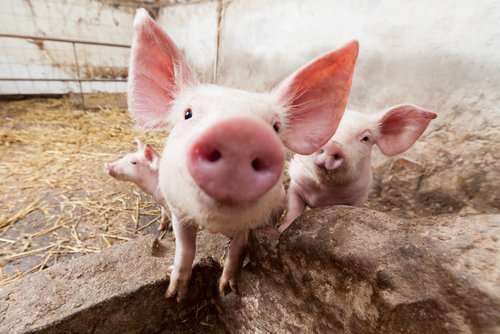Discovery was on a truck and not in animals
By Diego Flammini
Assistant Editor, North American Content
Farms.com
Porcine epidemic diarrhea was discovered on a livestock trailer in Alberta on Aug. 2.
This was the first time the disease was discovered in Alberta.
“This is the first time, yes, we’ve detected PED in a truck,” Julia Keenliside, a veterinary epidemiologist with Alberta Agriculture and Forestry, told CBC.
Keenliside said the virus was on the truck “at some point” but she doesn’t know if the virus was alive and capable of infecting any animals.
“What we do know is the protein from the virus sticks around a long time in the environment,” she told CBC.

The trailer was on its way back to Alberta from a processing plant in Wisconsin when the discovery was made. It was immediately kept for cleaning and disinfecting. The trailer was tested after the cleaning and deemed safe.
There have been various outbreaks in other parts of the country, but Keenliside wanted to make one thing perfectly clear.
“I want to emphasize that we don’t have porcine epidemic in Alberta, we’ve never had a case in pigs,” she told CBC, adding that members of the pork industry have helped keep the virus out of the province.
“The transport industry, Alberta Pork, the producers, the processors, the assembly yards – everyone has collaborated just fantastically.”